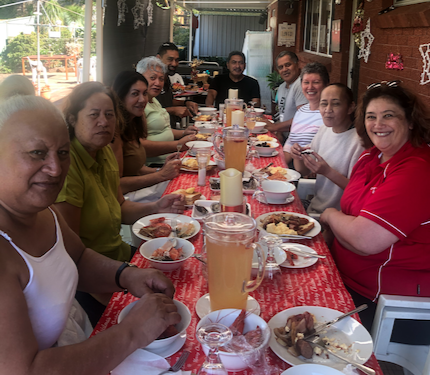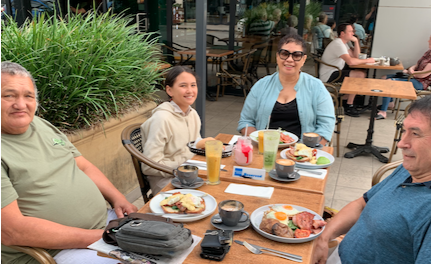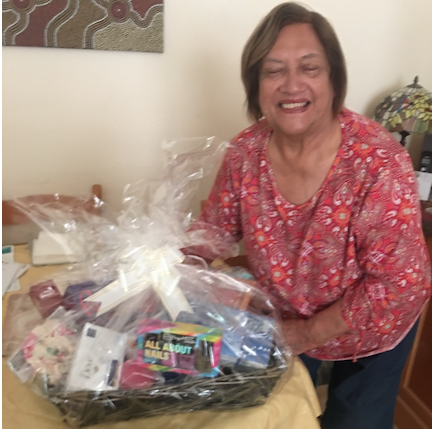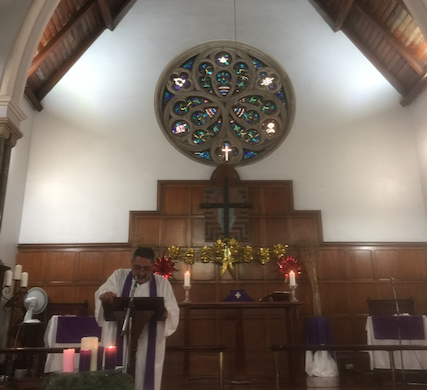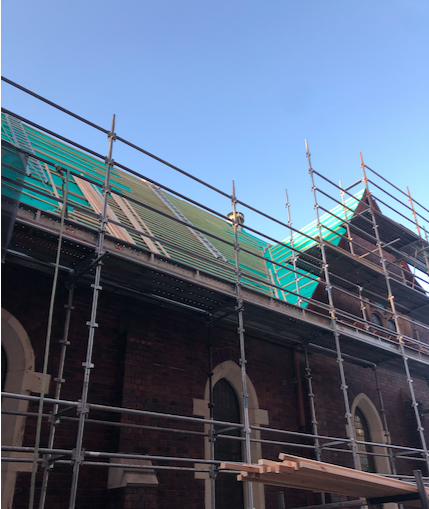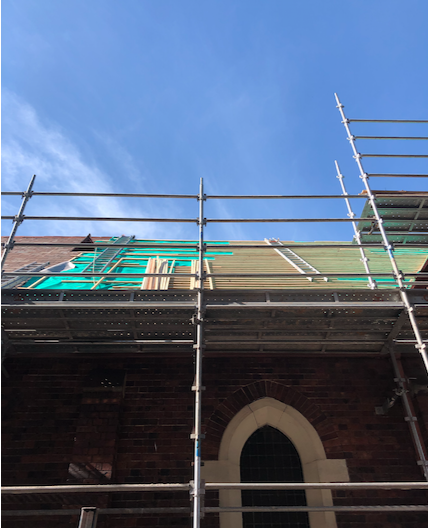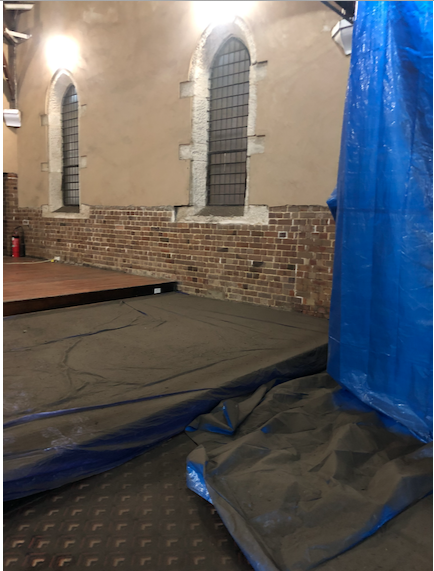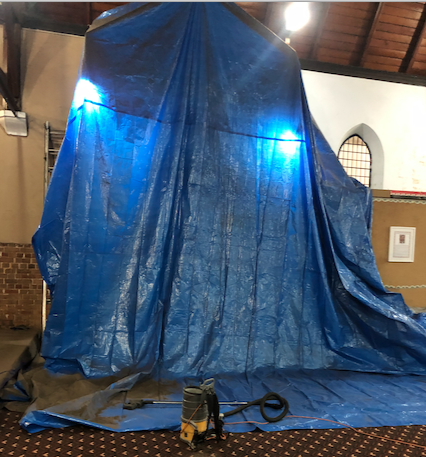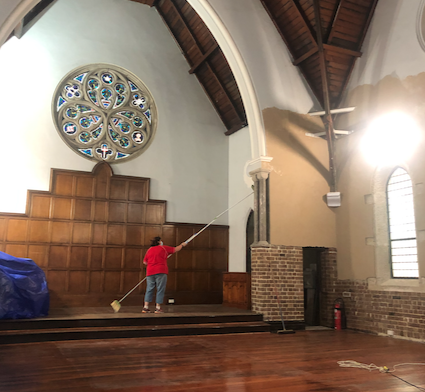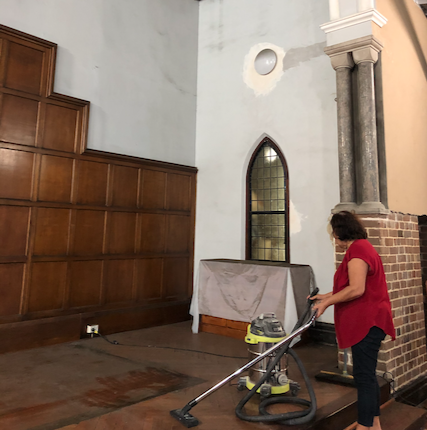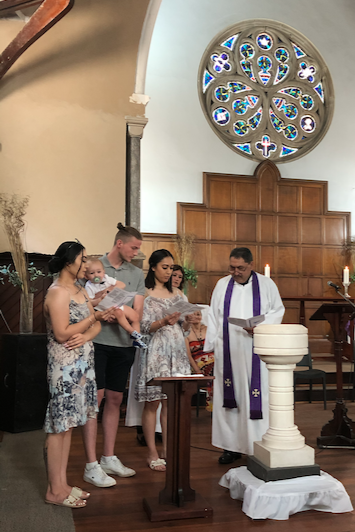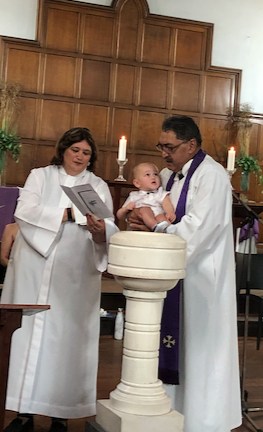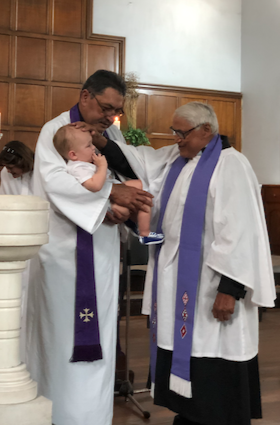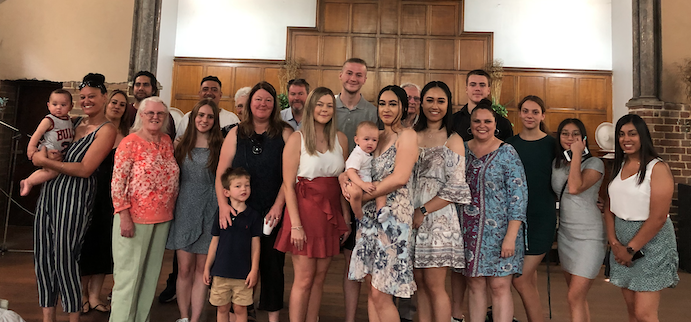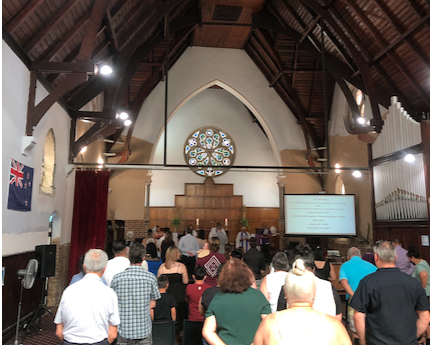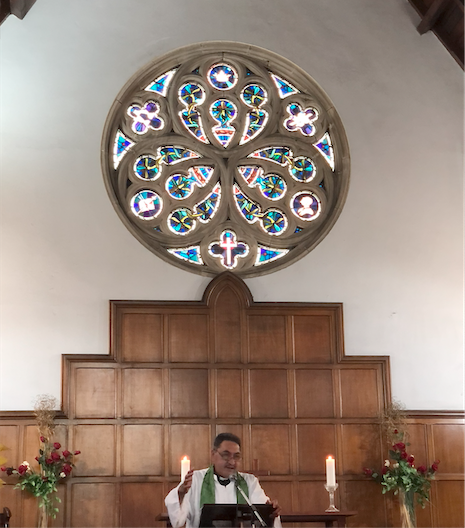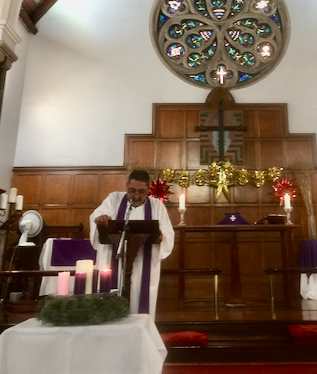
Who are You!
Readings:
Isaiah 61:1, 14, 8-11
Psalm 126
1 Thessalonians 5:16-24
John 1:6-8, 19-28
Sentence:
Bind up the broken-hearted, proclaim liberty to the captives and release to the prisoners, proclaim the year of the Lord’s favour, the day of vengeance of our God. Isaiah 61:1-2
Collect:
Almighty God, you sent your servant John the Baptist to prepare the way for the coming of your Son; grant that those who proclaim your word may so guide our feet into the way of peace, that we may stand with confidence before him when he comes in his glorious kingdom; through Jesus Christ our Judge and our Redeemer. Amen.
Gospel: John 1:6-8, 19-28
The Testimony of John the Baptist
There was a man sent from God, whose name was John. 7He came as a witness to testify to the light, so that all might believe through him. 8He himself was not the light, but he came to testify to the light. This is the testimony given by John when the Jews sent priests and Levites from Jerusalem to ask him, ‘Who are you?’ 20He confessed and did not deny it, but confessed, ‘I am not the Messiah.’ 21And they asked him, ‘What then? Are you Elijah?’ He said, ‘I am not.’ ‘Are you the prophet?’ He answered, ‘No.’ 22Then they said to him, ‘Who are you? Let us have an answer for those who sent us. What do you say about yourself?’ 23He said, ‘I am the voice of one crying out in the wilderness, “Make straight the way of the Lord”, as the prophet Isaiah said. Now they had been sent from the Pharisees. 25They asked him, ‘Why then are you baptising if you are neither the Messiah, nor Elijah, nor the prophet?’ 26John answered them, ‘I baptise with water. Among you stands one whom you do not know, 27the one who is coming after me; I am not worthy to untie the thong of his sandal.’ 28This took place in Bethany across the Jordan where John was baptising.
Tena koutou katoa e te whanau o Te Wairua Tapu.
Today is the third Sunday in Advent. As I’ve pointed out, Advent is a time of preparation for the coming of the Lord. A time for us to let go of old stories and re-discover a new way forward and a new way of being.
And so, John says, “Among you stands one whom you do not know.” Those are John’s words to the religious authorities who went to see him. They are also his words to us today. So who is the one? Who do you think John is referring to? Ot course, most of you would probably say “JESUS.” That’s the usual and most likely answer. That’s the answer I’ve always given. But today I want us to rethink the usual answer. Is Jesus the one and only or could there be others? Have there been others before Jesus? Will there be others after Jesus? I want us to hear John’s words in a bigger context. I want us to consider that maybe we sometimes focus so much on Jesus that we actually lose the gospel, and the messenger overshadows the message.
Could the one who stands among us be you? Or me? A a visitor that shows up to church on a Sunday? Or a stranger on the street? I’m not suggesting that Jesus is the wrong answer. But for us to consider there might be more than one right answer. What if John is not referring to the one as an exclusion of all others but as the ultimate example? And, what if John is saying to us that this one has always been among us and still is? In other words, this line of inquiry suggests that we didn’t recognise the one then and we still don’t now. And that raises a good question. Why don’t we recognise the one who stands among us?
Maybe the greatest barrier to seeing the divine presence among us is that we already have an idea or image of who that one is or should be and what that one should look like and do. In other words, we think we know and we stick with what we think we know. We can’t see the one because he or she doesn’t meet our expectations or fit our categories of who he or she can be. Sometimes, we don’t see the one among us because he or she stands outside the box of our beliefs. And more often than not we see and hear in such a way that it only confirms what we already believe.
That’s what the priests and Levites are doing with John. They come to him with the usual answers of who he should be; the Messiah, Elijah or the prophet. But he won’t allow them to do that to him. John doesn’t fit their expectations or categories because they don’t know the one who already stands among them. Sometimes we don’t even see the one who stands among us. A good example is our church building. We’ve been hoping and praying for our building to be fixed up for 35 years and it finally looks like it’s going to happen. But it’s taken a multitude of divine presences. Or as we like to put it, ‘Drops from God.’ This kind of thing is happening all the time. John is not announcing something new. He says so. “I am the voice of one crying out in the wilderness, ‘Make straight the way of the Lord,’ as the prophet Isaiah said” (John 1:23). Before John there was Isaiah. And don’t think John was the first to see the spirit descend upon the one. It also came upon Isaiah. He says,
“The spirit of the Lord God is upon me, because the Lord has anointed me;
he has sent me to bring good news to the oppressed,
to bind up the brokenhearted,
to proclaim liberty to the captives,
and release to the prisoners” (Isaiah 61:1).
Whenever or wherever these spiritual drops happen they point to one who stands among us. And more often than not we only recognise the one on reflection of our lives. And by the way, who of you have helped fix the church? Maybe you were the one of many or it was none of you but It could have been you. You might have done it if you were there. You’ve done that kind of thing before, right? Helped. And, you’ve had others do it for you, right? So tell me. Who has been one that stood among you and made the divine present? When have you looked back and seen that one doing some kind of spiritual healing in your life? And when have you been that one for another?
“Among you stands one whom you do not know.” So who is this one? What do you think? Who is John referring to? Yes, it’s Jesus. And yes, it was John and Isaiah. And yes, it can be you and me. That’s not a diminishment of who Jesus is or what he has done. It’s rather, a fulfillment of who he is and what he has done. I am not saying anything Jesus himself did not first say. “Very truly, I tell you, the one who believes in me will also do the works that I do and, in fact, will do greater works than these” (John 14:12). “Among you stands one whom you do not know.” They are words of hope, words of promise and words of God’s faithfulness. Amen.
Archdeacon Kaio Karipa
The Venerable Kaio Karipa
Chaplain
Sydney Maori Anglican Fellowship Church of Te Wairua Tapu
www.tewairuatapu.com.au
Photo: Te Wairua Tapu 2019. 3rd Sunday in Advent

